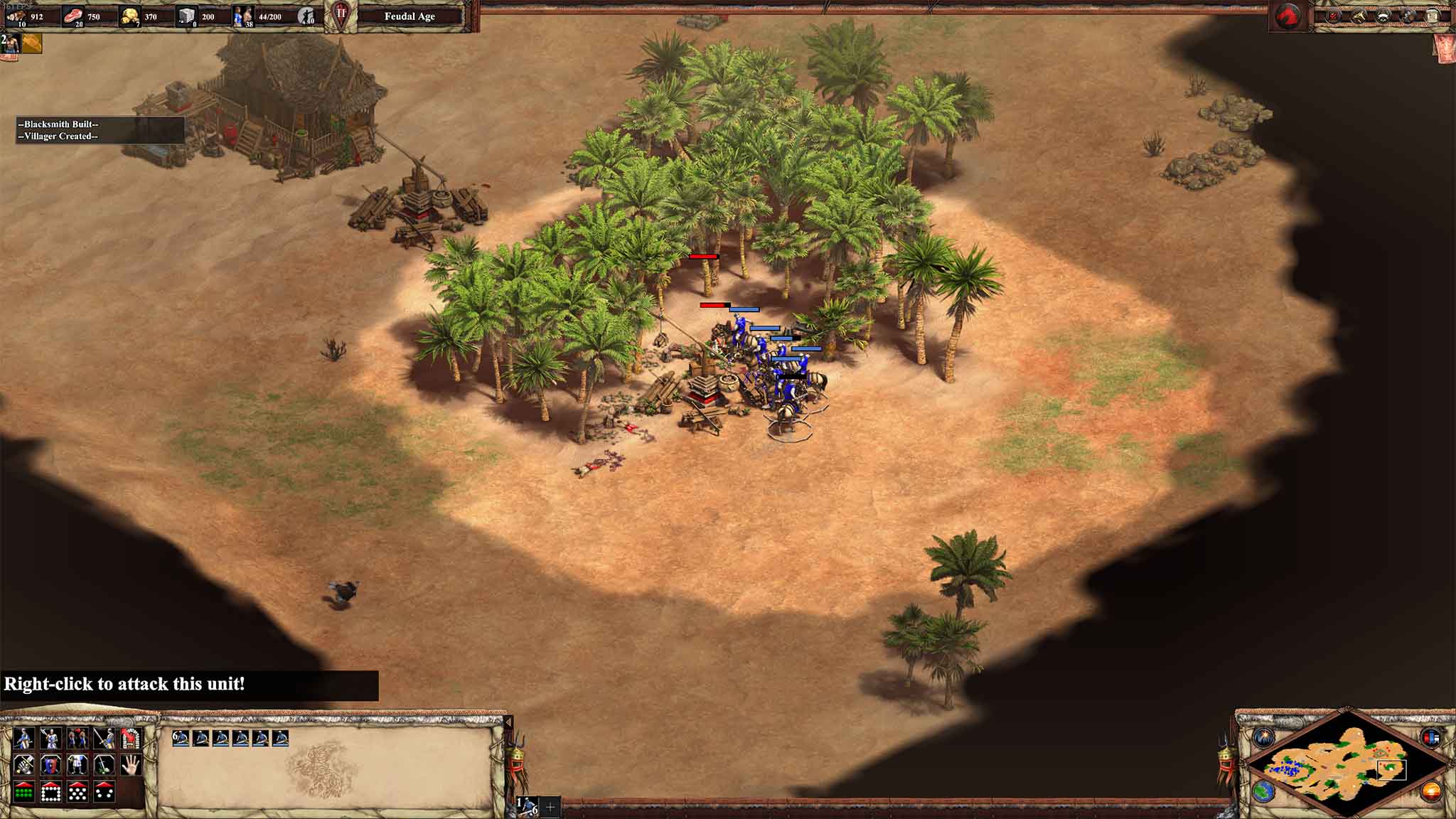
Part of the beauty of Age of Empires II: Definitive Edition — an aged real-time strategy (RTS) PC game recently remastered — is that no two games are ever the same. Whether you're playing against AI or other human players online, you will need to be in your best form if you hope to achieve victory. Rushing with scout calvary almost as soon as you reach Feudal Age is a great way to get the upper hand on the enemy, and we have the guide right here to help you master the strategy.
See our Age of Empires II: Definitive Edition Ultimate Beginner's Guide

A lot of game for the asking price
Age of Empires II: Definitive Edition manages to make the classic RTS feel new while not straying away from what made the game great in the first place.
Why use the Scout Rush?
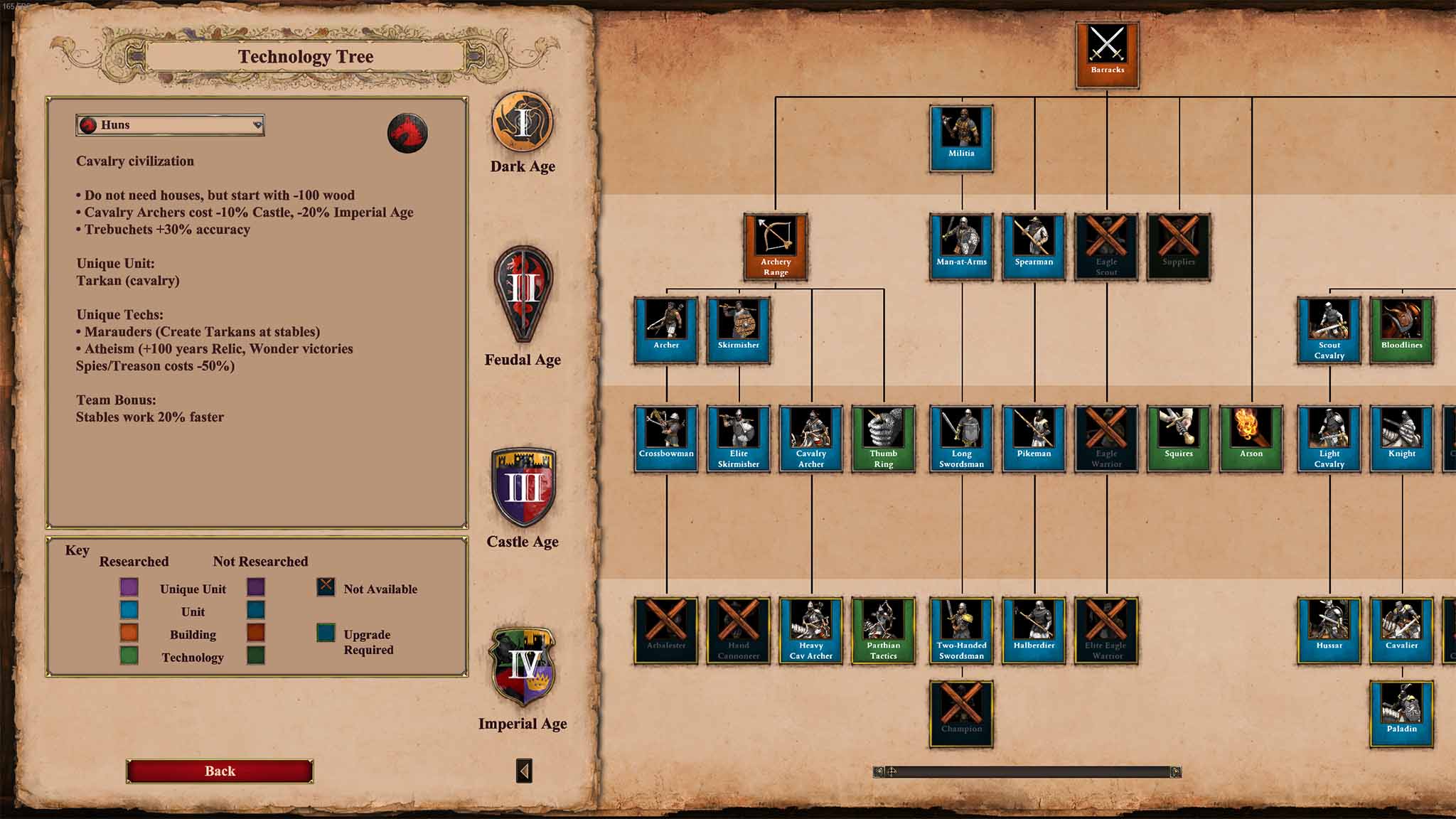
The Fast Feudal Rush used with scout cavalry — also known as the Scout Rush or Scout Flush or Scrush — involves a basic build order that gets your civilization into Feudal Age as quickly as possible with the resources required to build a small army of scouts. Scouts are very fast and do decent damage against other Feudal Age military units, so it's easy to raid and harass the enemy's base using your mobility. Once you've thrown your foe's economy into upheaval, it will be much easier to keep the advantage you've gained through the rest of the game.
If you're using scouts for your Feudal Rush, it's recommended you choose a civilization that includes at least the Bloodlines technology. Once you've been playing a while and have a grasp on different civ bonuses, you should know immediately if a Scout Rush is a good idea. I've commonly used Berbers, Mongols, Huns, Franks, and Magyars for a good result, though many other civs excel at this strategy.
Part of the beauty of a Scout Rush is that its build order can easily be transitioned into other builds once you've moved into Castle Age and beyond.
Basic Scout Rush build order
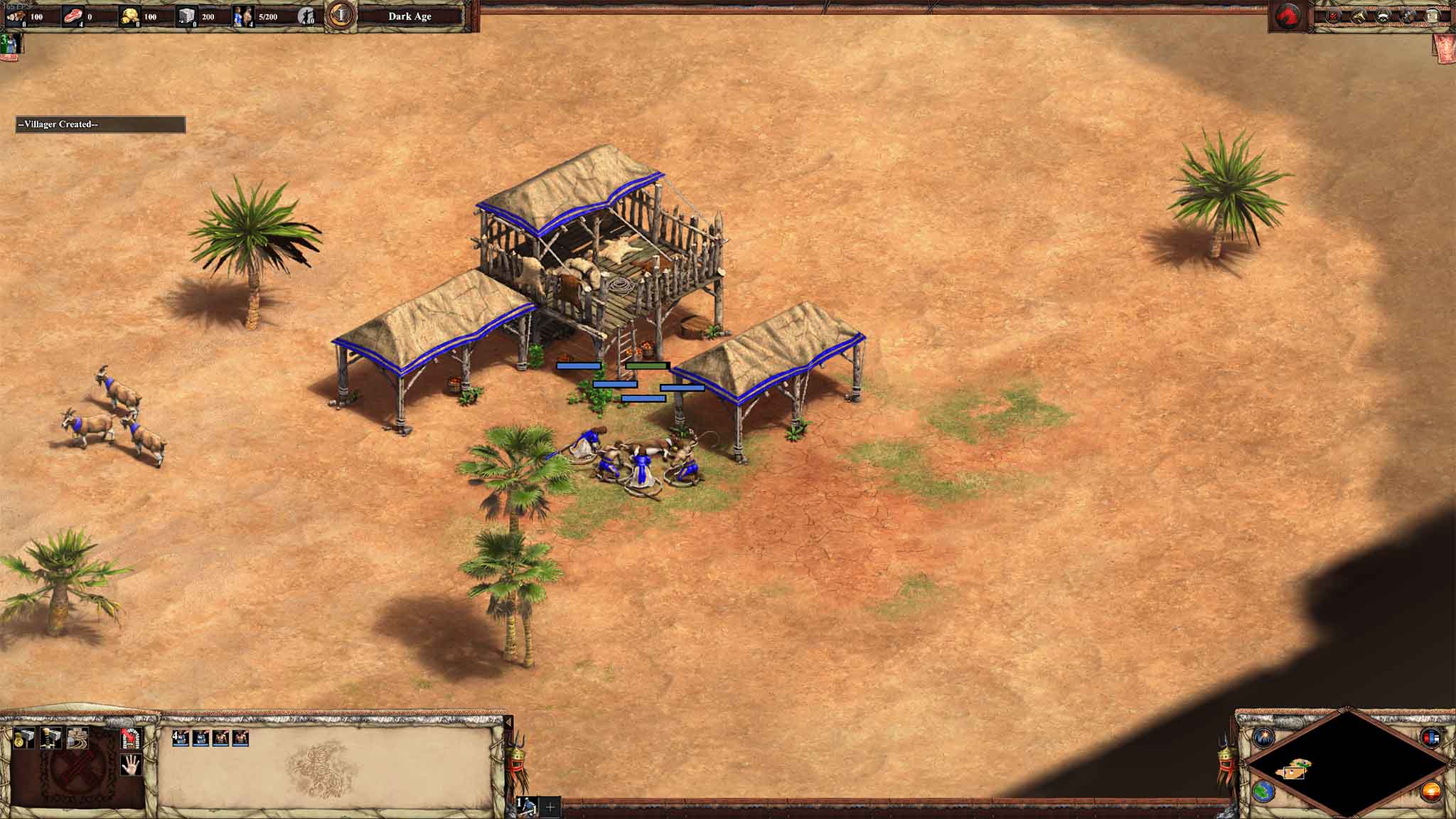
Like most Age of Empires II strategies, there are plenty of versions of the same build order that people try out depending on civilization, enemy, and map layout. You are free to do the same here, though the following steps are likely the most common you'll find and have proven to be rather foolproof.
- Immediately queue up as many villagers as possible in your Town Center (TC). Never let your TC idle.
- Have your scout expanding out in rings around your base. Find domesticated animals (like sheep) and wild animals (like boars) near your TC. Immediately send any found sheep back to your TC.
- Send two villagers (1, 2) to build one house. Leave enough space around your TC for farms.
- Send the other villager (3) to build a separate house. If you're playing as a civ that doesn't require houses, immediately send the villagers to harvest the sheep near your TC.
- The new villager (4) created should begin harvesting sheep under the TC.
- Send villagers (1, 2, 3) to harvest sheep once they've built the houses. Harvest one animal at a time to prevent carcass decay, which lowers the amount of harvestable food.
- Send new villagers (5, 6) created at the TC to harvest sheep. Keep your TC busy by queuing new villagers. If at any time you run out of food, research Loom at your TC.
- Send new villager (7) to build a lumber camp. Try to build it along a large woodline, and also try to keep it near the back of your base. This is your main woodline, so you want to keep it from being harassed.
- Send new villagers (8, 9) to chop wood at the lumber camp.
- Send new villager (10) to build a house near the first boar you plan to lure back to your TC.
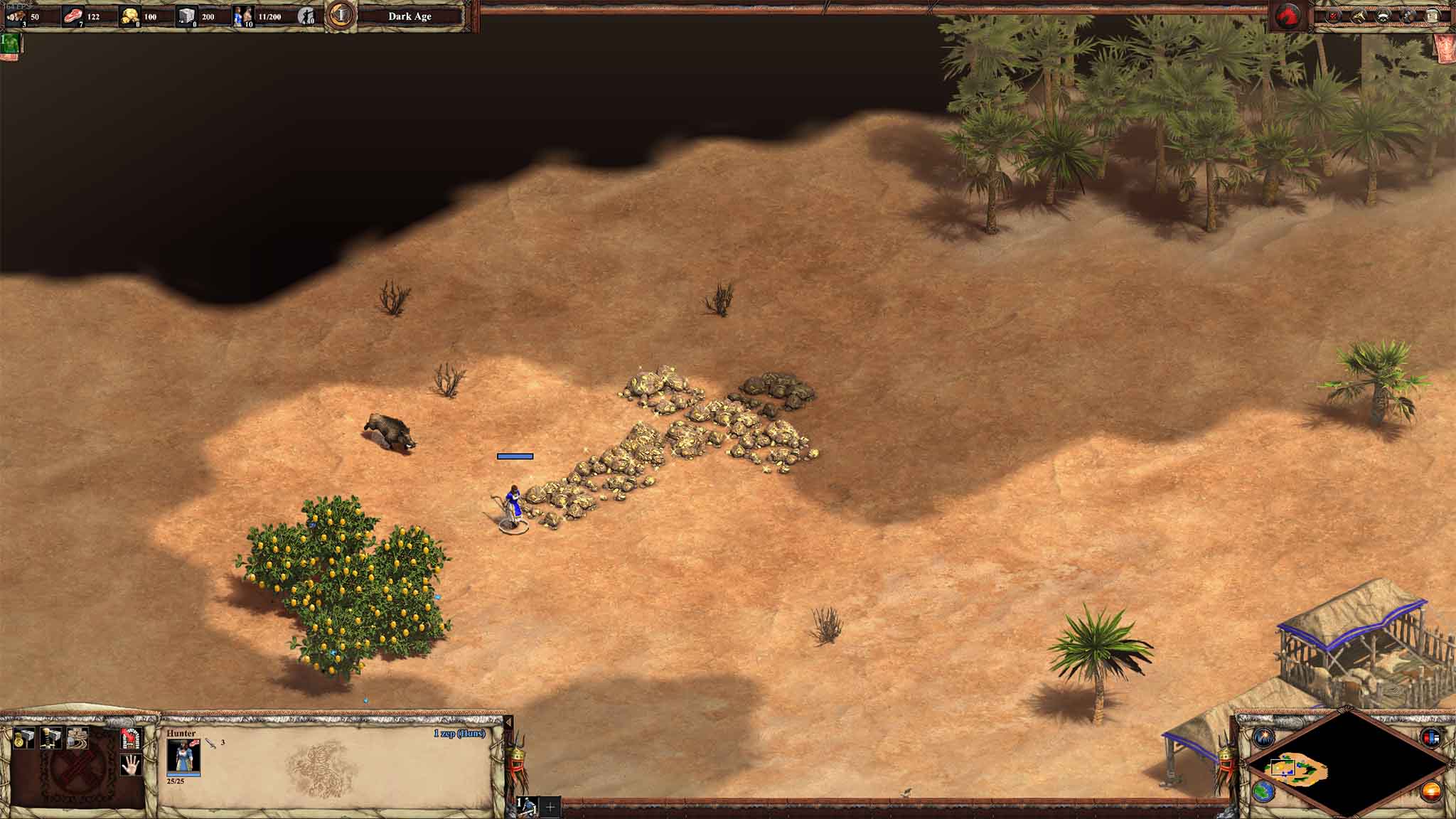
- Send villager (10) to lure the boar. Attack the boar at range once with the villager, then order the villager back to the TC. The boar will follow, allowing you to attack the boar with all villagers currently harvesting sheep.
- Send new villager (11) to harvest the boar at the TC.
- Send new villager (12) to build a mill next to the berries near your TC.
- Send new villagers (13, 14) to harvest berries at the mill.
- Send one of the full-health villagers tasked with harvesting sheep and boar to build a house near the second boar you plan to lure.
- Send new villager (15) to harvest berries.
- Send villager who built house to lure the boar back to your TC. The timing will no doubt differ here, but you usually want to send this villager to begin the house build and boar lure when the first boar you're already harvesting is at about half meat remaining.
- Send new villagers (16, 17) to harvest boar and sheep at the TC.
- Use two villagers who are at half health from luring boars to build farms next to your TC.
- Send new villager (18) to build a lumber camp along a separate woodline.
- Send new villagers (19, 20, 21) to chop wood at the new lumber camp.
- Research Feudal Age at your TC.
It will take practice to nail the timing, but you should expect to click the Feudal Age button somewhere around the eight-minute mark with 22 population (21 villagers and one starting scout). You should also know where your enemy is located on the map.
Get the Windows Central Newsletter
All the latest news, reviews, and guides for Windows and Xbox diehards.
Quick-glance summary of Scout Rush build order
Once you've tested this strategy a couple of times with the full instructions, it can be handy to browse some more basic steps.
- Villagers (1, 2, 3) build houses then harvest sheep.
- Villager (4, 5, 6) harvest sheep.
- Villager (7) builds lumber camp.
- Villagers (8, 9) chop wood at lumber camp.
- Villager (10) builds house and lures boar.
- Villager (11) harvests boar and sheep.
- Villager (12) builds a mill next to berries.
- Villagers (13, 14, 15) harvest berries at mill.
- Villagers (16, 17) harvest sheep and boar.
- Villager (18) builds new lumber camp.
- Villager (19, 20, 21) chop wood at new lumber camp.
- Click to begin Feudal Age research.
What to do next?
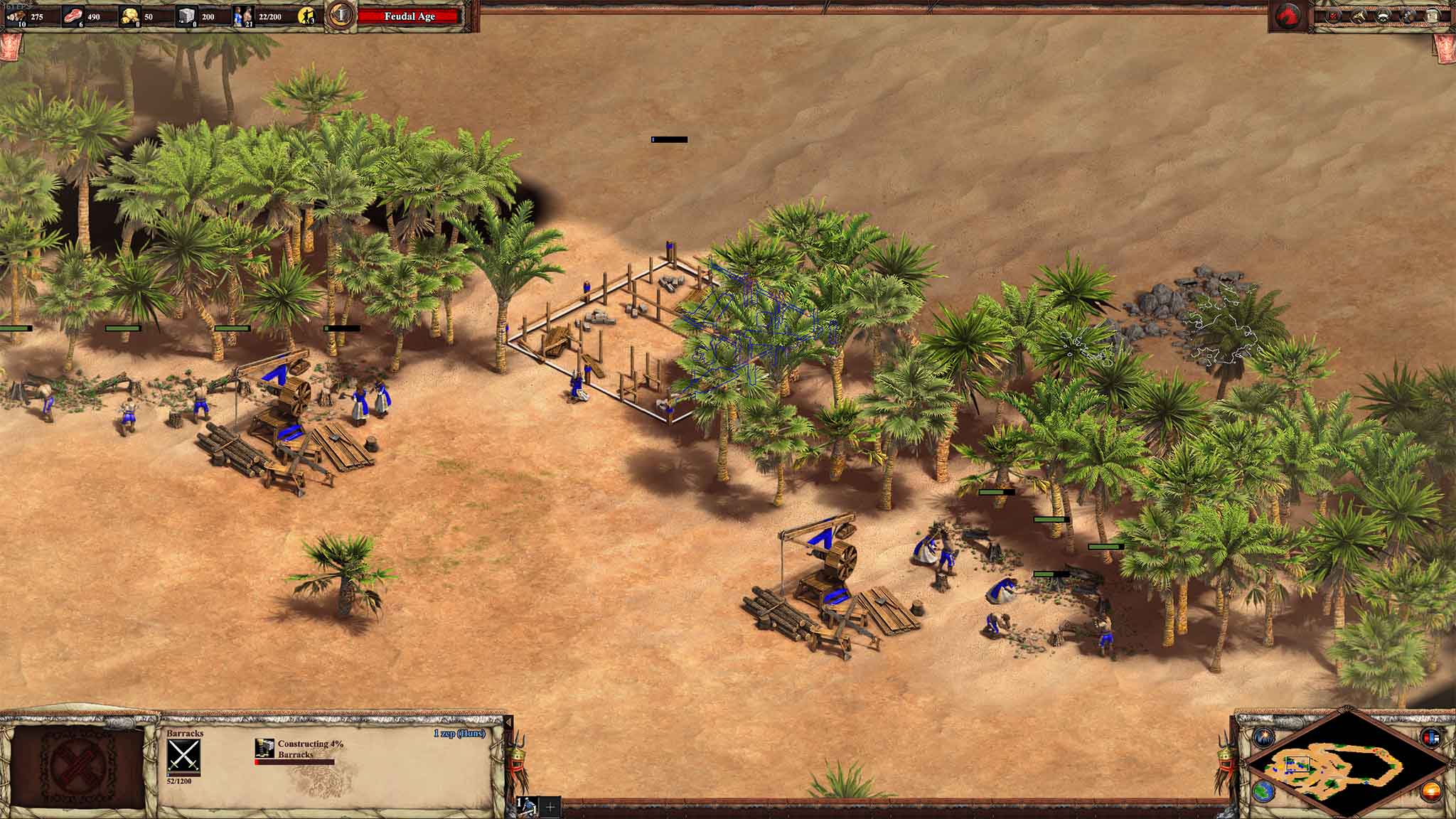
Once you've clicked to begin researching Feudal Age, it's recommended you move some villagers to new tasks. Take a few villagers who are harvesting boar and sheep and move to each of your lumber camps. This should make for five villagers, total chopping wood at each camp.
Pull another villager who was harvesting boar and sheep and build a barracks near your base. It might be tempting to build it closer to the enemy, but it's always a good idea to have a building to create units in case you need to mount a defense. Once the barracks are built, have the same villager build a house. If possible, position these new buildings between natural obstacles to create a wall. This will help keep the enemy out of your base in case they decide to do some raiding of their own.
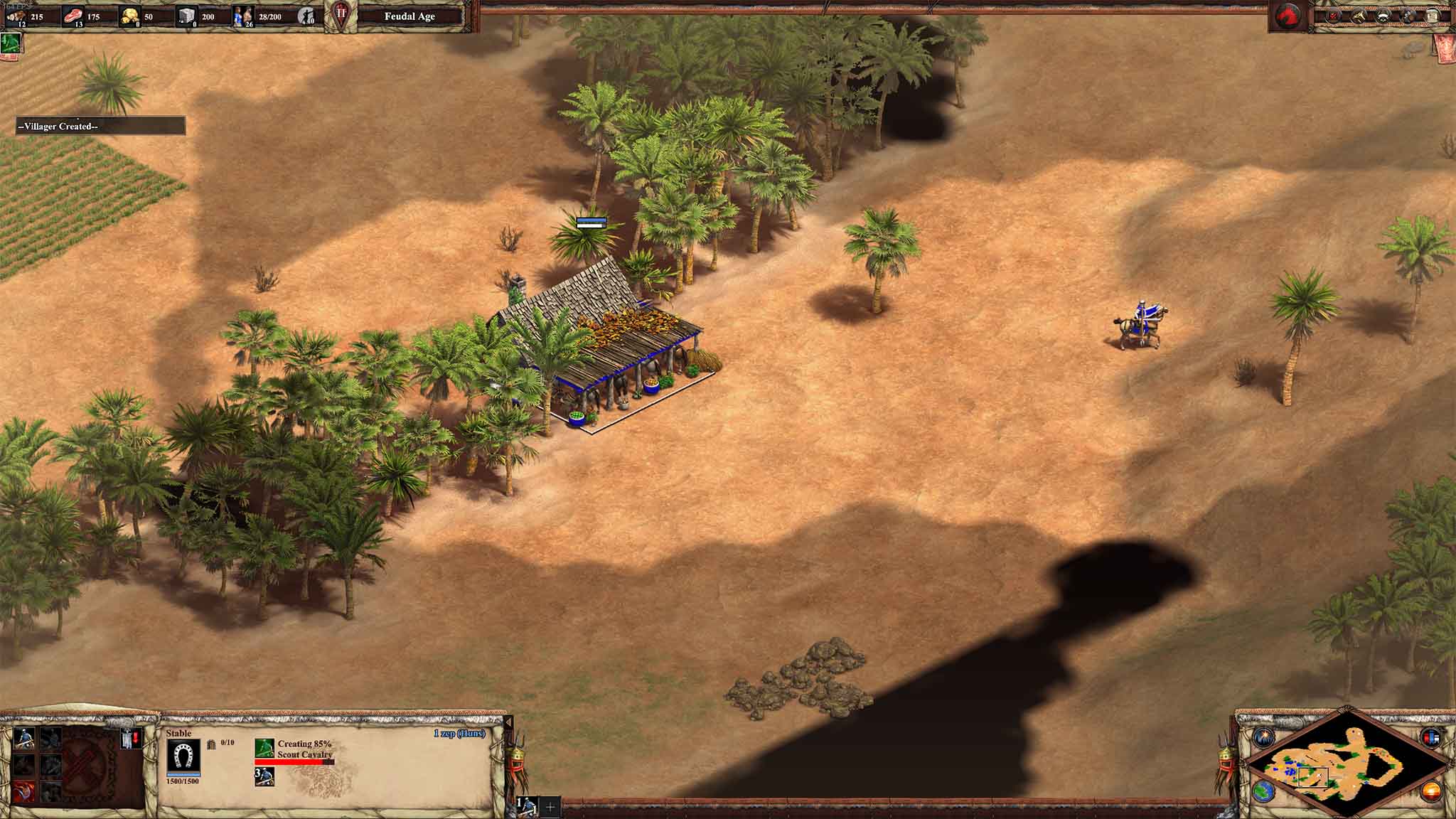
Once Feudal Age research is complete, immediately queue up a couple of new villagers at the TC to keep it from idling. Research the Double-Bit Axe technology at your lumber camp and research the Horse Collar technology at your Mill. Pull two more villagers from harvesting sheep to join the one villager who just built a barracks and house. Have the three villagers build a stable. Once the stable is built, immediately begin creating scout cavalry. These will form your raiding army.
Take one of the three builders and continue building houses near the stable. Continue with the makeshift wall format; your raiding will go much better if you're not threatened at home. The other two builders can return to the TC and begin creating farms. If you don't have enough wood, task any idle villagers near the TC to chop straggler trees until they can build farms. You also want to start mining gold to afford upgrades for your units and, eventually, a move up to Castle Age.
Continue making new villagers and building farms. Scouts only cost food, so you will need about 15 farms to keep the stable and TC active. Once you have six or seven scouts created (including the original you get at the start of the game), it's time to begin raiding. Research the Bloodlines perk at the stable as soon as you have enough gold and move your army toward the enemy base. This should be right around the 13:30 minute mark of the game.
Raiding with scouts
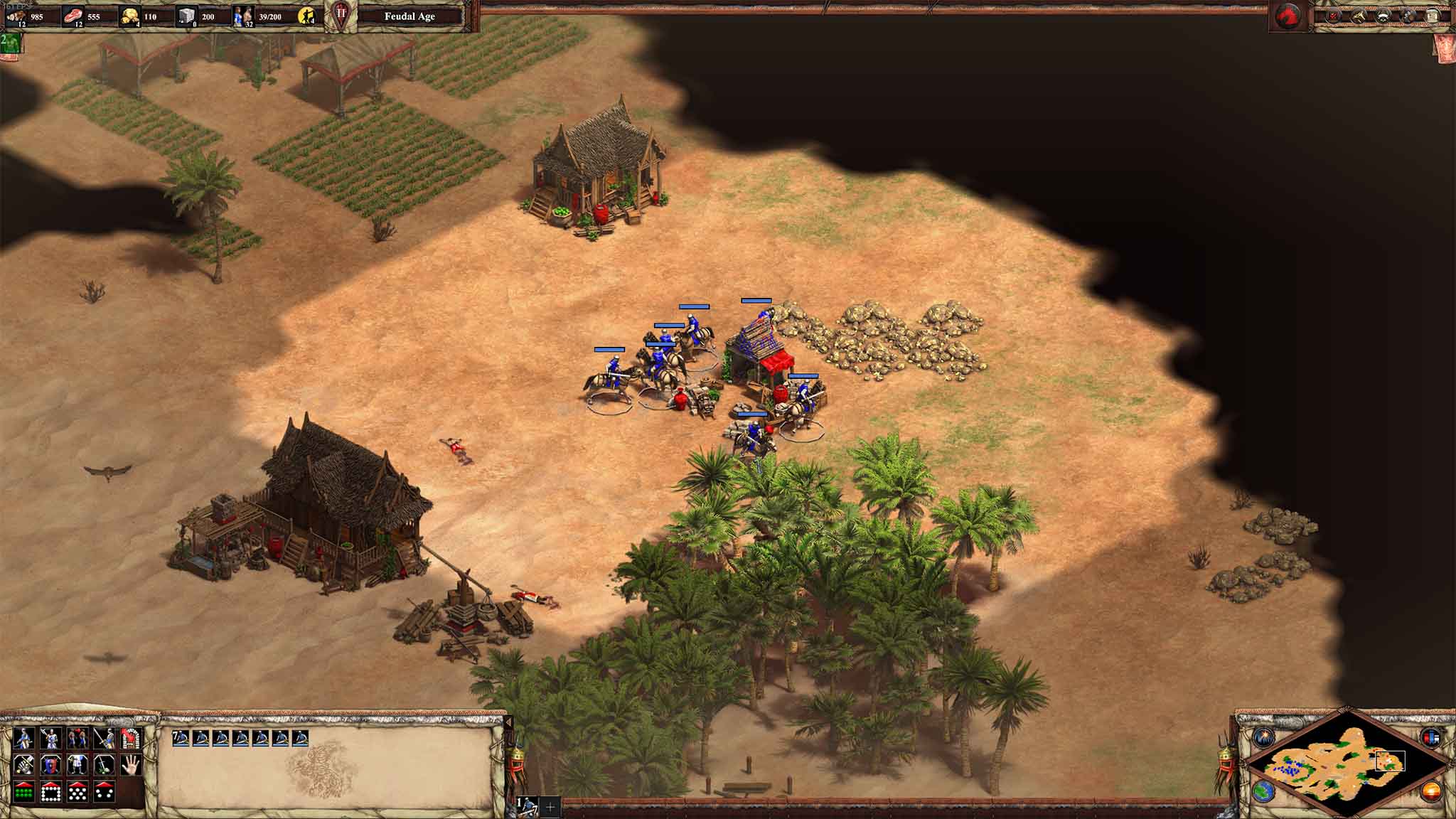
With your raiding part of scout cavalry on the move to the enemy's base (which you've hopefully already scouted and identified key resources), prepare for a lot of micromanagement. The ultimate goal isn't to completely crush your enemy here — though many people will simply give up if your raiding is good enough — but instead to slow the enemy's economy to the point where you'll reach Castle Age much sooner. With potent Castle Age tech available while the enemy is stuck in Feudal Age, you're sure to see a huge advantage.
Scouts are incredibly weak against spearmen, so keep an eye out for the enemy barracks and what units are being produced. If you see a group of spearmen, simply maneuver away from them and attack villagers elsewhere. However, if your enemy sends just one spearman at a time into a group of your six or seven scout cavalry, feel free to kill it without taking much damage.
Attempt to kill enemy villagers harvesting resources, building new buildings, and building walls. Keep out of range of the enemy TC at all costs. It will do serious damage to your scouts when villagers are garrisoned. The enemy will no doubt create counter units (likely spearmen) and might even build a defensive tower to keep your scouts at bay. These are all good things, as they are hurting the enemy's economy and forcing them into a build order they did not foresee. Keep your scouts on the move always and continue harassing the enemy wherever you find a weakness.
If you feel that your enemy is close to giving up, you can simply continue creating scouts. Build another stable at home and continuously pump them out for an overwhelming force. Otherwise, you'll want to plan for a longer game.
Transitioning into end-game strategies
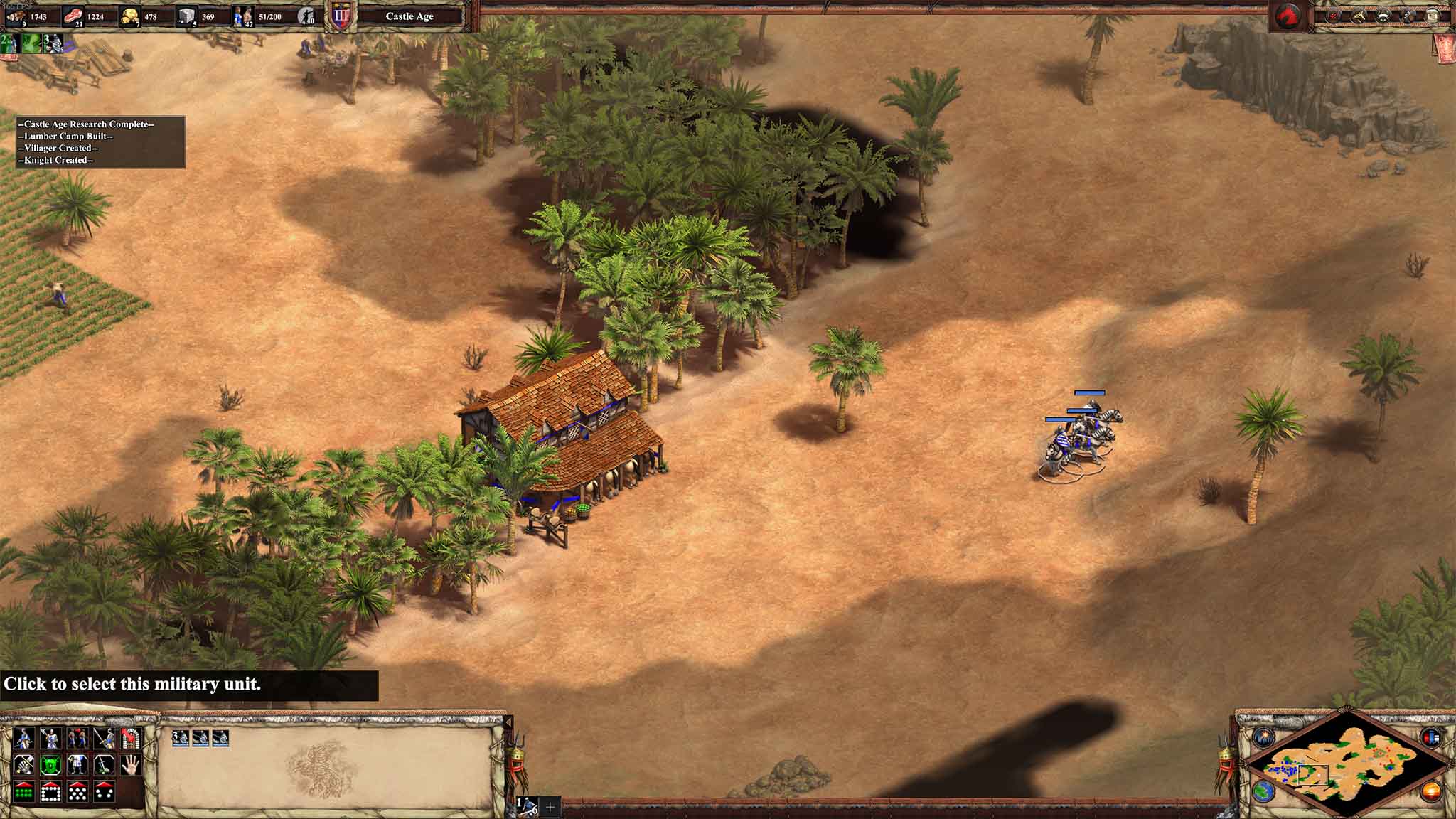
You always want to keep your scouts on the move, but you also don't want to ignore what's going on at home. The game likely isn't going to end in Feudal Age, so you will need to plan ahead for Castle and even Imperial Age. Always keep your TC active creating new villagers, and be sure there are no idle villagers. If you want to drop a castle on the enemy, be sure to have at least four or five villagers mining stone.
If your enemy has built a ton of infantry units (man-at-arms and spearmen) to counter your scouts, you might want to transition into building archers or cavalry archers. If the enemy has instead built archers to counter, you can create skirmishers. All you need to do is build an archery range and begin creating them. You'll also want to build a blacksmith and begin researching the corresponding technologies to get an advantage.
If you're instead using a civ that is strong in cavalry, focusing on clicking up to Castle Age to access knights is a great idea. Continue creating villagers, expand your economy, build a blacksmith and other supporting buildings, and research Castle Age as soon as possible. Begin building knights from your stables once you hit Castle Age, and don't forget to research the applicable techs at the blacksmith.
Wrapping up
The Scout Rush is a time-tested strategy that is often used even by high-end players. It's a great way to knock your opponent off balance, and it can be transitioned into other strategies quite easily. Have some tips of your own? Be sure to let us know in the comments section how you plan to rush the enemy in the Feudal Age. And be sure to check out our Fast Castle and Tower Rush guides for more great strategies.

Cale Hunt brings to Windows Central more than eight years of experience writing about laptops, PCs, accessories, games, and beyond. If it runs Windows or in some way complements the hardware, there’s a good chance he knows about it, has written about it, or is already busy testing it.
